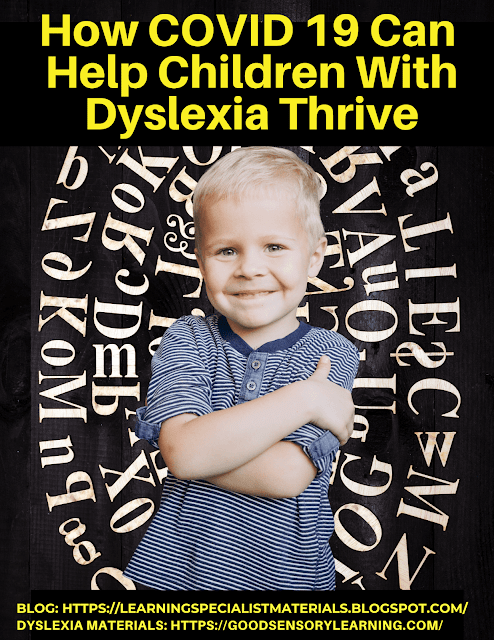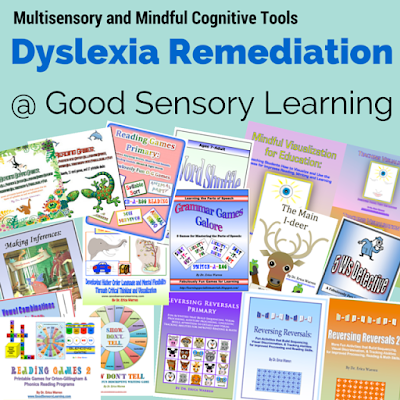COVID 19 has Changed the World and Education
Bustling metropolises have become overnight ghost towns and rambunctious classrooms lay deserted and lifeless. Families who once scattered during the daylight hours into detached existences are now hunkering down in close quarters at home together both day and night. Kids with dyslexia and other learning disabilities are spending all their time at home with their parents and are needing direct assistance and help with academic support. As a result, it's been an eye-opening experience for many parents as they witness the true learning needs of their child. Some are now witnessing reading and writing struggles for the first time.

COVID 19 Created an Opportunity for Dyslexics and Other Struggling Students
The social isolation that has resulted from the COVID 19 pandemic now offers an opportunity for parents to observe and help their child that may have been slipping through the system. For many families, they may now understand that their child needs additional help with learning to read, decoding words, reading comprehension, spelling words, language processing skills, following directions, and more. They also may notice their child struggle with additional dyslexia symptoms such as word-finding difficulties and low stamina for completing assignments.
What is Dyslexia?
Dyslexia is a type of learning disability that impacts language processing in the brain. Common symptoms include difficulties with decoding words, associating sounds to symbols, reading comprehension, spelling, recalling words, interpreting language, and producing/understanding both oral and written language.
How Can Parents Screen their Child for Dyslexia?
Although some parents may already know that their child has dyslexia, many others may speculate this to be a possible diagnosis. So what can suspecting parents do?
Now parents can quickly take a FREE dyslexia screener or dyslexia test that can help to uncover the likelihood that their child has dyslexia. Screeners, uncover the common symptoms of dyslexia and they can help guide educational services and testing. This can be a quick and easy way to get the process going so that your child can receive the needed attention, accommodations, and services.
Can Dyslexia be Treated with Medication?
Unfortunately, there is no medication treatment for dyslexia. Rather, it requires a different instructional approach that includes a multisensory, explicit, structured, and prescriptive way to develop literacy skills such as learning to read. Some students can receive this type of intervention in pull-out programs at school, others will have to seek help in a private institution or through individualized support with a specialist such as a reading specialist or educational therapist.
What is the Best Intervention for Dyslexia?
What's the best way to help struggling students learn?
- Reach out to your school and request the needed testing and support. If a student receives a diagnosis of dyslexia and they are experiencing underachievement in reading skills and other school-based subjects, they can receive reasonable accommodations, they may qualify for help in a resource room, and they may offer a 504 or IEP (Individualized Education Program).
- Seek individualized treatment or assistance from a learning specialist, reading specialist, or educational therapist.
- Buy some remedial activities that you can do at home to help your child.
I'm Concerned that My Child Will Get Even Further Behind
When students are out of school for a two-month summer break, they often experience the "summer slide" or loss of achievement gains. However, due to COVID 19, I project that we will see academic losses like never before. However, this does not have to be the case for your child with dyslexia. The present moment can be a wonderful time and opportunity for your child to learn and spring forward by addressing knowledge gaps and cognitive-based weaknesses. For example, if your child's reading, writing, and executive functioning skills are weak, get them the one to one support so that they can return to a schooling environment with new competencies and confidence. We offer this type of support at Learning to Learn or you can find local professionals by CLICKING HERE.
Dyslexia Treatment at Home
- reading games and activities
- writing games and activities
- spelling games and activities
- categorization games and activities
- higher-order language games and activities
- listening to audiobooks while you and your child read along
- take turns reading aloud with your children
Where Can Parents and Professionals Get a Bundle of Activities for Students with Dyslexia?
At Good Sensory Learning, we offer a comprehensive bundle of games, lessons, and exercises for the treatment of students with dyslexia. They can be used by therapists, teachers, reading specialists, educational therapists, parents, and more. CLICK HERE to learn about this collection. You can also view all our individual products that were created with dyslexic students in mind: CLICK HERE. They can be used at home, in school, or online with a tutor, learning specialist, or educational therapist.
Pandemics Don't Come Along Very Often, and It's a Terrible Thing to Waste.
Clearly, social isolation and the closing of schools from the COVID 19 pandemic has created an unexpected benefit for struggling students and those with dyslexia and other disabilities. Because parents are directly observing their child and now fully know their academic needs, fewer students will slip through the cracks, and problems can be resolved.
I hope you find this information and tips helpful.
Cheers, Dr. Erica Warren
Dr. Erica Warren is the author, illustrator, and publisher of multisensory educational materials at Good Sensory Learning and Dyslexia Materials. She is also the director of Learning to Learn and Learning Specialist Courses.
- Blog: https://learningspecialistmaterials.blogspot.com/
- YouTube Channel: https://www.youtube.com/user/warrenerica1
- Store: http://www.Goodsensorylearning.com/ & www.dyslexiamaterials.com
- Courses: http://www.learningspecialistcourses.com/
- Newsletter Sign-up: https://app.convertkit.com/landing_pages/69400 You will need to enter your email address to sign up for our mailing list.
- Email address: erica@goodsensorylearning.com
2020 Erica Warren LLC. All rights reserved. Dr. Warren does not provide medical advice or diagnoses.


Comments
Post a Comment